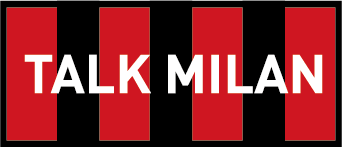As per the club’s official site on Sunday night, AC Milan will join 11 other ‘leading football clubs to establish a new midweek competition, the Super League’.
The Rossoneri will be a founding club along with the likes of Juventus, Inter, Real Madrid, Barcelona, Manchester United and Liverpool, while additional clubs are expected to join to increase the number of the initial 12 that were announced over the weekend.
READ MORE: How Milan could line up vs Sassuolo: Five changes, Romagnoli and Ibrahimovic return
Unsurprisingly, the decision has been met with fierce criticism from fans, pundits and governing bodies alike, and with UEFA and domestic leagues being tipped to take action against the Super League and the clubs involved, it’s unclear at this early stage how the situation will play out.
So, what does it mean for Milan and is it a good thing for the club?
Argument for the Super League
As with any decision, particularly one of this magnitude, there will have been pros and cons that the management considered carefully before deciding to be involved in the creation of this new competition.
Many have pointed out the obvious motivation of joining, and that is purely financial. Given the clubs involved and the model that is likely to be presented, there is undoubtedly a significant cash injection that will be involved for the clubs in question.
As seen in the tweet below from Swiss Ramble, the first thing to consider from a Milan perspective is the debt the club currently has. The boost provided by a Super League would certainly go some way in wiping that out firstly.
On top of that, the riches of such a competition would provide increased spending power to improve the squad and enable the club’s hierarchy to invest, with a new stadium being touted for years now. None of this would arguably be done with the fans in mind, but it would increase the value of the club.
Playing devil’s advocate for a moment too, if Milan refused to be involved in the competition, they would simply risk falling further behind both their European and domestic rivals by not being able to dip into the pot of gold like Juventus and Inter, and that would put us at a further disadvantage moving forward.
The ethical and moral stand would be to snub the Super League. Think of the impact on the other clubs right down the Italian system, if the money brought in by the likes of Milan isn’t there, it effects all in some form.
However, it’s almost forced on Milan to accept being part of this ambitious project given the potential benefits that it offers, and given the strategy and endpoint that Elliott Management Group are looking for with their investment, it’s an ideal solution for them.
Reasons for the European Super League, part 2: the 12 clubs have £5.6 bln of debt, per UEFA’s definition of financial debt (£3.5 bln) and transfer debt (£2.1 bln). Moreover, almost all of the financial debt has come from banks (£3.3 bln), compared to only £0.2 bln from owners. pic.twitter.com/Ck6YUp0Fbg
— Swiss Ramble (@SwissRamble) April 19, 2021
Argument against the Super League
As per the Super League press release, the intention of the clubs involved is to remain in their domestic leagues.
That is one of the areas that I take issue with. For Milan, Juve and Inter to go off and establish this new Super League, enjoy additional funds being pumped into their coffers to widen the gap between themselves and the rest of the competition in Italy and then expect to just turn up and play Serie A games on a Sunday is not going to work.
Perhaps there will be negotiations and solutions proposed to avoid an unfair advantage, but it’s not right for the competition that the lower-table sides have to play in a weakened position before a ball is even kicked.
Further, if the clubs involved are banned from domestic and/or UEFA competitions, we all lose something as fans. The sense of competition, meaningful objectives, passion for the game at these clubs that get promoted and circle fixtures against Milan and trips to the San Siro on their calendars. It could all go, and that would be a real loss for the heart and soul of the game.
Milan are playing catch-up themselves right now with Europe’s elite. Going into a Super League next season might not be a great amount of fun from our perspective in the more immediate future, and the magic and prestige of facing the likes of Lionel Messi and Barcelona every other week will take something away from those games.
This is a money move. All the clubs involved in the inception of the Super League have ownership that have had question marks raised over their motives and already have issues with the respective fanbases. They’ve shown that they will mostly do what they want and disregard the wishes of supporters, and this could be the latest step in transforming the game into what they want, a cash cow that can be milked for much, much more.

